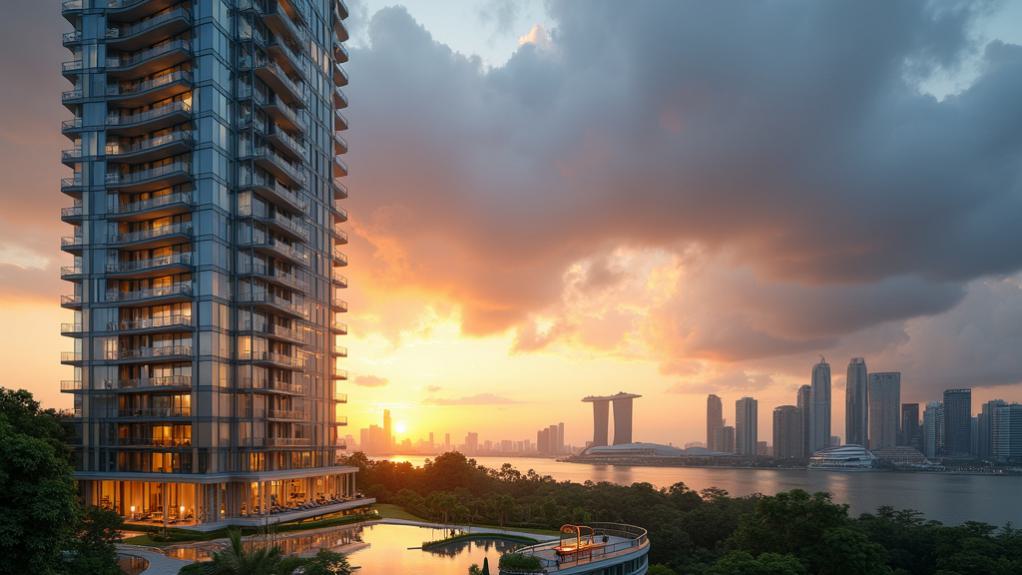How dramatically can favorable financing conditions reshape an ultra-high-end property market? Singapore’s luxury condominium sector demonstrated this phenomenon with remarkable clarity in the first half of 2025, as transactions surged 54% to reach 45 units valued at S$584.3 million, substantially outpacing broader market performance.
Low interest rates emerged as the primary catalyst behind this unprecedented growth, making luxury borrowing markedly more attractive to affluent buyers who leveraged cheap financing to unseal larger asset purchases. The ultra-luxury segment particularly benefited from these conditions, posting 17 unit sales in the first quarter alone and signaling renewed market traction after previous periods of slower activity.
Low interest rates unleashed unprecedented luxury property demand, with affluent buyers leveraging cheap financing for larger asset purchases.
Both local and foreign high-net-worth individuals contributed to this demand surge, drawn by Singapore’s continued status as a regional financial hub and attractive rental yield prospects. Foreign buyers face an Additional Buyers Stamp Duty of 60% on residential purchases, which adds significant costs to luxury property acquisitions.
Expansion projects such as Marina Bay Sands bolstered demand in surrounding areas, while Sentosa Cove remained a focal point for international buyers seeking landed and luxury properties. Local upgraders and new residents pursuing prime addresses further strengthened transaction volumes.
Price appreciation accompanied this sales momentum, with private residential prices increasing 3.33% year-on-year by the first quarter of 2025. Non-landed units, including luxury condominiums, drove most quarterly gains, while experts predict 3-4% growth in private residential property prices for the full year. The luxury segment specifically shows projections for over 3% annual growth from 2025 through 2030.
However, several factors threaten this boom’s sustainability. Market experts identify rising macroeconomic and geopolitical risks as potential headwinds, while authorities may implement cooling measures if price growth accelerates excessively. The easing of cooling measures such as ABSD Stamp Duty has contributed to increased demand for luxury apartments, though this policy environment remains subject to change. Notably, foreign purchases represented only 2% of new sales and 1.4% of resales, indicating subdued international demand despite luxury market gains.
Global capital flow variability could impact foreign demand, a critical component of luxury segment performance, and lending rates remain vulnerable to international interest rate adjustments.
Supply dynamics present additional considerations, with approximately 2,600 units scheduled for completion by end-2025 and peak new unit completions expected in 2029. While current unsold luxury inventory remains low, supporting strong pricing platforms, increased future supply may rebalance market dynamics and moderate growth rates, potentially tempering the current boom conditions.





